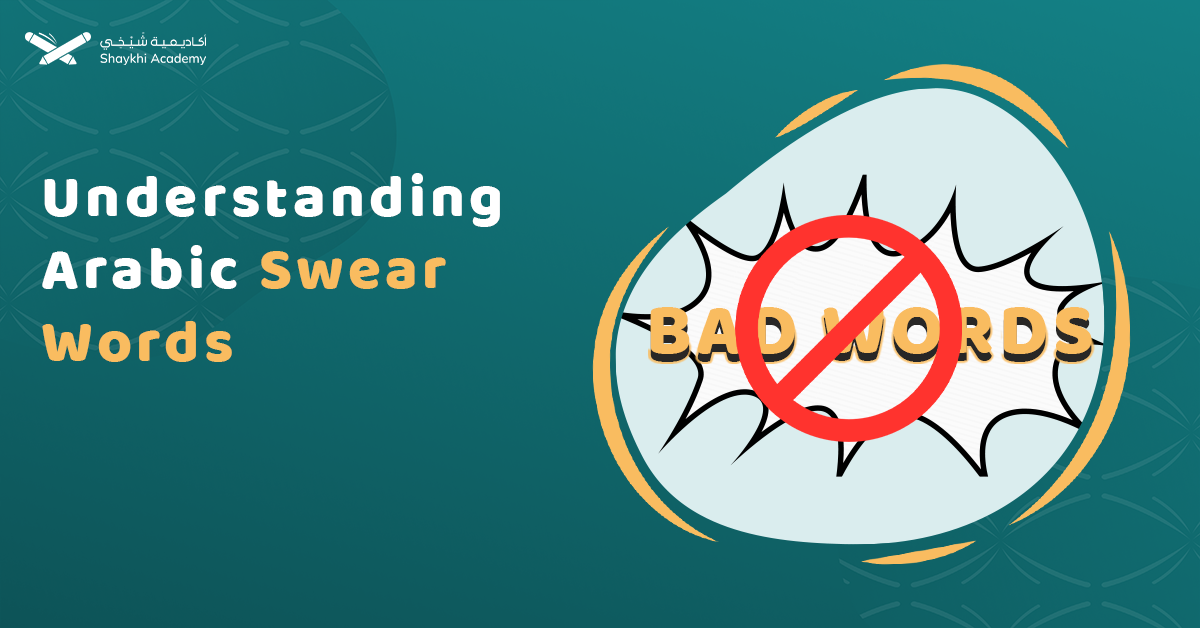Arabic is a language rich in expression, eloquence, and cultural nuance. Among its many facets, the ability to articulate emotions, including frustration or disapproval, stands out. This article explores the concept of “Arabic insults” and their equivalents in the Arabic language.
Whether they take the form of casual expressions, lighthearted reprimands, or more direct phrases, understanding these terms provides valuable insights into the culture and communication style of Arabic-speaking communities.
By learning polite ways to express frustration or annoyance, learners can navigate informal conversations with grace and cultural sensitivity.
What Is the Equivalent of the Term Arabic Insults in Arabic?
The equivalent of the term “Arabic insults” in Arabic is الإهانات العربية (Al-Ihānat Al-‘Arabiyyah), شتائم عربية (Shatā’im ‘Arabiyyah), or سباب عربي (Sibāb ‘Arabī). This phrase refers to offensive or insulting expressions used in the Arabic language. If you’re looking for a specific category or context of insults, such as slang or formal usage, the term could be modified to specify that.
Why Learn Arabic Insults?
Learning Arabic insults, particularly those that are mild and culturally nuanced, offers valuable insights into the language and culture. These expressions often reflect the wit and indirectness valued in Arabic-speaking communities, focusing on creativity and respect rather than vulgarity.
Understanding these phrases not only enhances your ability to navigate informal communication but also teaches you how to express anger or frustration in a polite and socially acceptable manner. General Arabic courses may teach such vocabulary, as this skill is especially useful for managing conflicts diplomatically or even diffusing tension with humor.
Approaching this topic with sensitivity and cultural awareness makes it an enriching and practical part of your language-learning journey. The Arabic language offers numerous ways to express frustration or annoyance while maintaining politeness and respect.
Such phrases are especially common in Modern Standard Arabic (MSA), where eloquence and decorum are key. Whether used to lightly reprimand, convey disappointment, or express surprise, these expressions allow speakers to navigate emotions gracefully.
The use of such phrases may unintentionally offend or harm relationships, as cultural nuances and tone are not always easily conveyed. To communicate effectively and respectfully, it is better to focus on mastering positive and neutral expressions, which foster understanding and goodwill. Using language thoughtfully and with sensitivity ensures that interactions remain constructive and culturally appropriate.
What Are Arabic Swear Words?
The Arabic language offers numerous ways to express frustration or annoyance while maintaining politeness and respect. In MSA courses, you can ask your teacher to introduce you to this list professionally to learn to express yourself while angry in a polite way.
Below is a list of 20 polite and culturally appropriate phrases that reflect the richness and flexibility of Arabic communication.
| # | Expression | Transliteration | Translation | Context/Use |
| 1 | يا خسارة | Ya Khasārah | “What a loss!” | To express disappointment. |
| 2 | سبحان الله | Subḥān Allāh | “Glory be to God!” | Expression of surprise or disbelief. |
| 3 | يا غبي | Ya Ghabiyy | “You silly” | Light teasing, not harsh. |
| 4 | الله يسامحك | Allāh Yusāmiḥuk | “May God forgive you” | Used for mild annoyance. |
| 5 | يا جبان | Ya Jabbān | “You coward” | Playful or mild disapproval. |
| 6 | يا مجنون | Ya Majnūn | “You crazy” | Often joking or affectionate. |
| 7 | الله يهديك | Allāh Yahdīk | “May God guide you” | Polite way to express frustration. |
| 8 | عيب عليك | ʿAyb ʿAlayk | “Shame on you” | To express disapproval politely. |
| 9 | حرام عليك | Ḥarām ʿAlayk | “Shame on you” | Often used for unjust behavior. |
| 10 | ما هذا | Mā Hādhā | “What is this?” | Expression of frustration or disbelief. |
| 11 | خذ الأمر ببساطة | Khudh al-Amr Bi-Basāṭah | “Take it easy” | Encouraging calm in a frustrating moment. |
| 12 | مالك دخل | Mā Laka Dakhl | “It’s none of your business” | Politely setting boundaries. |
| 13 | لا فائدة | Lā Fā’idah | “There’s no use” | Expressing resignation. |
| 14 | اصبر قليلاً | Iṣbir Qalīlan | “Be patient for a while” | Asking someone to wait calmly. |
| 15 | لماذا تفعل ذلك؟ | Limādhā Tafʿal Dhālik? | “Why are you doing that?” | Questioning actions in mild annoyance. |
| 16 | من فضلك | Min Faḍlik | “Please” | Used firmly to express impatience. |
| 17 | توقف عن ذلك | Tawaqqaf ʿAn Dhālik | “Stop that” | Polite command to cease a behavior. |
| 18 | يا ثقيل | Ya Thaqīl | “You slowpoke” | Mild teasing about slowness. |
| 19 | يا ممل | Ya Mumill | “You boring one” | Playful disapproval or teasing. |
| 20 | هذا سخيف | Hādhā Sakhīf | “This is ridiculous” | Expressing frustration with an idea. |
Learn Arabic Online with Expert Teachers – Start Your Journey Today!
Unlock the beauty of the Arabic language with our expert-led online General Arabic courses at Shaykhi Academy. Whether you’re starting from scratch or looking to refine your skills, our qualified teachers will guide you through each step of the learning journey.
Join today and gain access to personalized lessons, interactive materials, and flexible scheduling that fit your needs. Don’t wait—begin your Arabic learning adventure now and open the door to a world of opportunities!
Why Shaykhi Academy?
- Expert Native Tutors: Learn from highly qualified native Arabic speakers.
- Flexible Scheduling: Tailor your classes to fit your busy life.
- Affordable Learning: Access top-quality education at a price that suits you.
- Global Access: Study from anywhere in the world.
Explore Our Arabic Courses:
- Noorani Qaida: Build a strong foundation in Quranic Arabic.
- Comprehensive Arabic Courses: Master the Arabic language, from beginner to advanced levels.
- Fusha Arabic Classes: Delve into Modern Standard Arabic, the key to understanding literature, media, and formal communication across the Arab world.
- Quranic Arabic Course: Enhance your connection with the Quran by learning the language in which it was revealed.
Start Your Arabic Journey Today! Whether you’re just starting or looking to deepen your knowledge, Shaykhi Academy is here to support your journey. Book your free trial now and begin your path to Arabic mastery!

The Conclusion:
In exploring Arabic insults, we uncover not only linguistic variety but also cultural values that emphasize wit, respect, and decorum. The phrases highlighted in this article reflect the elegance of Modern Standard Arabic and its ability to balance emotional expression with politeness.
By understanding and using these expressions thoughtfully, learners gain a deeper appreciation of the Arabic language and culture. Moreover, this knowledge equips them with tools to handle frustration, express emotions diplomatically, and enhance their overall communication skills.
Learning such expressions is not just about language—it’s about embracing the nuances of a rich and vibrant culture.

















































